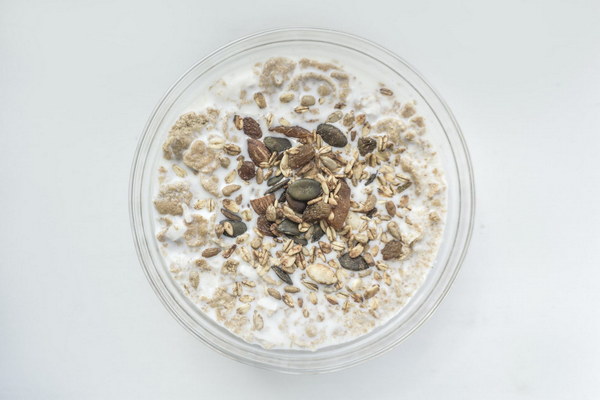Harmonizing the Body The Benefits of Wenyang, Spleen-Qi Tonification, Phlegm-Resolving, and Dampness-Relieving Practices
In traditional Chinese medicine, the concept of Wenyang, Spleen-Qi Tonification, Phlegm-Resolving, and Dampness-Relieving refers to a holistic approach aimed at balancing the body's internal environment to prevent and alleviate various health issues. This method focuses on warming the body, strengthening the spleen and digestive system, resolving phlegm, and expelling dampness. By understanding the principles behind these practices, one can achieve a state of harmony and well-being.
Wenyang, which translates to warming the yang, is the process of boosting the body's yang energy to maintain warmth and vitality. This energy is vital for the proper functioning of the body's organs, including the spleen. A healthy spleen is crucial for digestion, nutrient absorption, and blood production. When the spleen is weak, it can lead to a variety of issues, such as fatigue, weight gain, and poor immunity.
To strengthen the spleen and promote its proper function, traditional Chinese medicine employs various practices, including dietary adjustments, herbal remedies, and lifestyle modifications. Foods that are warm and nourishing, such as ginger, cinnamon, and garlic, can help warm the body and invigorate the spleen. Additionally, herbal formulas like Astragalus and Codonopsis are often prescribed to tonify the spleen and enhance its ability to process nutrients.

Phlegm, in Chinese medicine, is a substance that can accumulate in the body due to various factors, such as a weakened spleen, dampness, or external environmental influences. Excess phlegm can lead to symptoms like cough, wheezing, and sinus congestion. To resolve phlegm, it is essential to address its root cause, which is often dampness.
Dampness, as described in traditional Chinese medicine, is a condition characterized by excess fluid in the body, leading to symptoms like fatigue, heaviness, and bloating. It can be caused by factors such as overeating, exposure to cold and damp weather, or an imbalanced diet. To relieve dampness, the body must be encouraged to expel the excess fluid.
One way to achieve this is through the use of diuretics and herbs that help drain dampness from the body. Herbs like Poria, Atractylodes, and Alisma are commonly used in Chinese medicine to promote urination and reduce dampness. Additionally, physical activities like walking, swimming, and tai chi can help stimulate the body's natural processes for removing dampness.
Incorporating these practices into one's daily routine can lead to a multitude of benefits. Here are some of the advantages of following the principles of Wenyang, Spleen-Qi Tonification, Phlegm-Resolving, and Dampness-Relieving:
1. Enhanced digestion and nutrient absorption: A strong spleen ensures that the body can effectively process and utilize the nutrients from the food we consume.
2. Increased energy levels: Warming the body and tonifying the spleen can help combat fatigue and increase overall vitality.
3. Improved immunity: A well-functioning spleen can enhance the body's ability to fight off pathogens and maintain a healthy immune system.
4. Reduced phlegm and congestion: By resolving phlegm and dampness, individuals can experience relief from symptoms like cough, wheezing, and sinus congestion.
5. Weight management: Addressing dampness and improving digestion can help regulate weight and promote a healthier body composition.
6. Enhanced mental clarity: By reducing the accumulation of dampness in the body, individuals may experience improved cognitive function and mental clarity.
In conclusion, the principles of Wenyang, Spleen-Qi Tonification, Phlegm-Resolving, and Dampness-Relieving offer a comprehensive approach to achieving a balanced and healthy body. By focusing on the body's internal environment and addressing the root causes of imbalance, individuals can experience a multitude of health benefits and improve their overall well-being.









